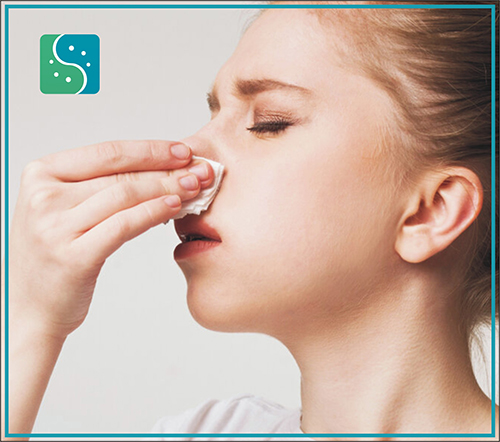EPISTAXIS,or a nosebleed, is when you lose blood from the tissue that lines the inside of your nose. A combination of dry air and tiny blood vessels that line the inner surface of your nose often cause nosebleeds.
Homoeopathy is highly beneficial in removing the constant tendency of epistaxis in a person. For a complete cure, medicines aim at correcting the underlying cause that is leading to the nose bleed. There are number of medicines to stop the bleeding which is selected according to the cause of bleeding character of the blood and other associated symptoms of the case. Homoeopathic medicines based on the constitution of the person are not only helpful in stopping the nosebleed but also helps in treating the tendency of epistaxis in a person.
“Epistaxis” is the medical term for a nosebleed. A nosebleed, meaning a loss of blood from the tissue that lines the inside of your nose, can occur in one or both nostrils. Usually, it only affects one nostril.
Anyone can get epistaxis. Most people will have at least one case in their lifetime. However, some people are more likely to have a nosebleed. They include:
The most common cause of nosebleeds is dry air. Hot, low-humidity climates or heated indoor air cause dry air. Both environments cause your nasal membrane (the delicate tissue inside your nose) to dry out and become crusty or cracked. This makes it more likely to bleed when rubbed or picked or when blowing your nose. You may also experience epistaxis after inserting an object in your nose or injuring your nose and/or face.

Use the following steps to stop a nosebleed at home.
There are many non-serious reasons you may be getting frequent nosebleeds. They can affect one or both nostrils. The most common causes are:
In rare cases, repeated epistaxis could be a sign of a bleeding disorder or other more serious conditions.
Yes, you should drink plenty of fluids after a nosebleed. Good options include water & Juice.
Yes. Blood clots are clumps of blood that form in reaction to an injured blood vessel. Blood clotting prevents excessive bleeding when a blood vessel is damaged. When you pinch your nose to stop a nosebleed, the blood will begin to clot. It’ll normally remain there until you remove it or gently blow your nose.
Epistaxis, or nosebleeds, is a common yet irritating medical condition. Learn the steps for how to stop a nosebleed fast, and you’ll quickly be able to return to whatever you were doing before it started. Homoeopathy provides a safe and permanent treatment in the cases of epistaxis. It is beneficial in both stopping the bleeding from the nose as well as in treating its frequency and tendency in a person. Although most cases of epistaxis aren’t serious, you should see your doctor if you get them frequently or have a bleeding disorder.